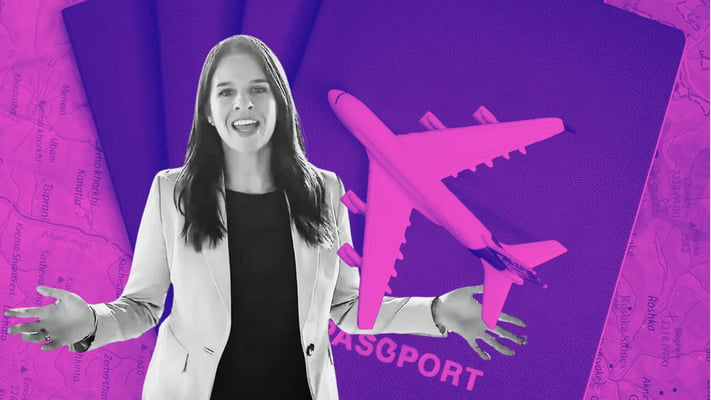More Bad News For Low-Skill Migrants Workers

Low-skilled migrants hoping to work in New Zealand were dealt another blow on Wednesday with the government taking more joy out of the proposition.
Most people who land a job in ANZSCO level 4 or 5 occupations–the official classification for low-skill work–are no longer allowed to bring in their families with them.
These include roles like hospitality workers, bus and truck drivers, supervisors, fast-food cooks, labourers, kitchen hands, cleaners, factory workers, etc.
The new rules follow a slew of restrictions the government announced last month that have already made it difficult for low-skill overseas workers to find jobs in New Zealand.
Immigration New Zealand (INZ) says starting June 26, 2024, those in these low-skill jobs without a pathway to residency won’t be allowed to support work, visitor or student visa applications for their partners and dependent children.
The family members are still allowed to apply for an independent visa on their own merit if they qualify for it, an immigration official says.
“The government has made this change to align with the broader suite of changes to the AEWV [Accredited Employer Work Visa] scheme earlier this year, and returns the settings to similar ones under the previous Essential Skills Work Visa,” read an INZ press release on Wednesday.
Erica Stanford has made no bones about her displeasure with the AEWV scheme letting in thousands of low-skill migrants in jobs that she feels could have been filled by locals.
While announcing the first lot of restrictions last month, the immigration minister said the rules are being changed largely to make sure New Zealanders get priority when it comes to jobs that are not in the skills shortage category.
The changes announced last month included a new English threshold, meaning applicants now need to score at least Band 4 in IELTS, or equivalent in PTE.
The new provisions also require the government to first verify that none of the unemployed locals qualify for the role, and that employers will need to advertise the job vacancy for an extra week.
If low-skill workers do make it through these settings, they can work only up to two years, and a third year if their employers take a fresh Job Check.
Vandana Rai of Immigration Advisers New Zealand Limited points out the latest adjustment does not impact individuals currently holding visas as partners or dependents of AEWV holders, and ongoing applications submitted by partners or dependents before June 26 will be assessed based on the regulations in place at the time of application.
"Furthermore, AEWV holders in ANZSCO level 4 or 5 roles with a residency pathway, such as those on the Green List or a Sector Agreement, or earning at least 1.5 times the relevant median wage, are exempt from these changes. Similarly, AEWV holders in ANZSCO level 1, 2, or 3 roles remain unaffected."
She adds while there are arguments supporting the change in policy, the practical implications for workers and their families cannot be ignored.
"It is crucial to consider whether these changes strike the right balance between maintaining immigration standards and supporting the needs of New Zealand's labour market and communities.
"Additionally, these modifications are poised to discourage skilled professionals from taking up roles in ANZSCO level 4 and 5 positions, further burdening NZ employers already grappling with a myriad of HR challenges."
Low-skilled migrants hoping to work in New Zealand were dealt another blow on Wednesday with the government taking more joy out of the proposition.
Most people who land a job in ANZSCO level 4 or 5 occupations–the official classification for low-skill work–are no longer allowed to bring in their...
Low-skilled migrants hoping to work in New Zealand were dealt another blow on Wednesday with the government taking more joy out of the proposition.
Most people who land a job in ANZSCO level 4 or 5 occupations–the official classification for low-skill work–are no longer allowed to bring in their families with them.
These include roles like hospitality workers, bus and truck drivers, supervisors, fast-food cooks, labourers, kitchen hands, cleaners, factory workers, etc.
The new rules follow a slew of restrictions the government announced last month that have already made it difficult for low-skill overseas workers to find jobs in New Zealand.
Immigration New Zealand (INZ) says starting June 26, 2024, those in these low-skill jobs without a pathway to residency won’t be allowed to support work, visitor or student visa applications for their partners and dependent children.
The family members are still allowed to apply for an independent visa on their own merit if they qualify for it, an immigration official says.
“The government has made this change to align with the broader suite of changes to the AEWV [Accredited Employer Work Visa] scheme earlier this year, and returns the settings to similar ones under the previous Essential Skills Work Visa,” read an INZ press release on Wednesday.
Erica Stanford has made no bones about her displeasure with the AEWV scheme letting in thousands of low-skill migrants in jobs that she feels could have been filled by locals.
While announcing the first lot of restrictions last month, the immigration minister said the rules are being changed largely to make sure New Zealanders get priority when it comes to jobs that are not in the skills shortage category.
The changes announced last month included a new English threshold, meaning applicants now need to score at least Band 4 in IELTS, or equivalent in PTE.
The new provisions also require the government to first verify that none of the unemployed locals qualify for the role, and that employers will need to advertise the job vacancy for an extra week.
If low-skill workers do make it through these settings, they can work only up to two years, and a third year if their employers take a fresh Job Check.
Vandana Rai of Immigration Advisers New Zealand Limited points out the latest adjustment does not impact individuals currently holding visas as partners or dependents of AEWV holders, and ongoing applications submitted by partners or dependents before June 26 will be assessed based on the regulations in place at the time of application.
"Furthermore, AEWV holders in ANZSCO level 4 or 5 roles with a residency pathway, such as those on the Green List or a Sector Agreement, or earning at least 1.5 times the relevant median wage, are exempt from these changes. Similarly, AEWV holders in ANZSCO level 1, 2, or 3 roles remain unaffected."
She adds while there are arguments supporting the change in policy, the practical implications for workers and their families cannot be ignored.
"It is crucial to consider whether these changes strike the right balance between maintaining immigration standards and supporting the needs of New Zealand's labour market and communities.
"Additionally, these modifications are poised to discourage skilled professionals from taking up roles in ANZSCO level 4 and 5 positions, further burdening NZ employers already grappling with a myriad of HR challenges."









Leave a Comment